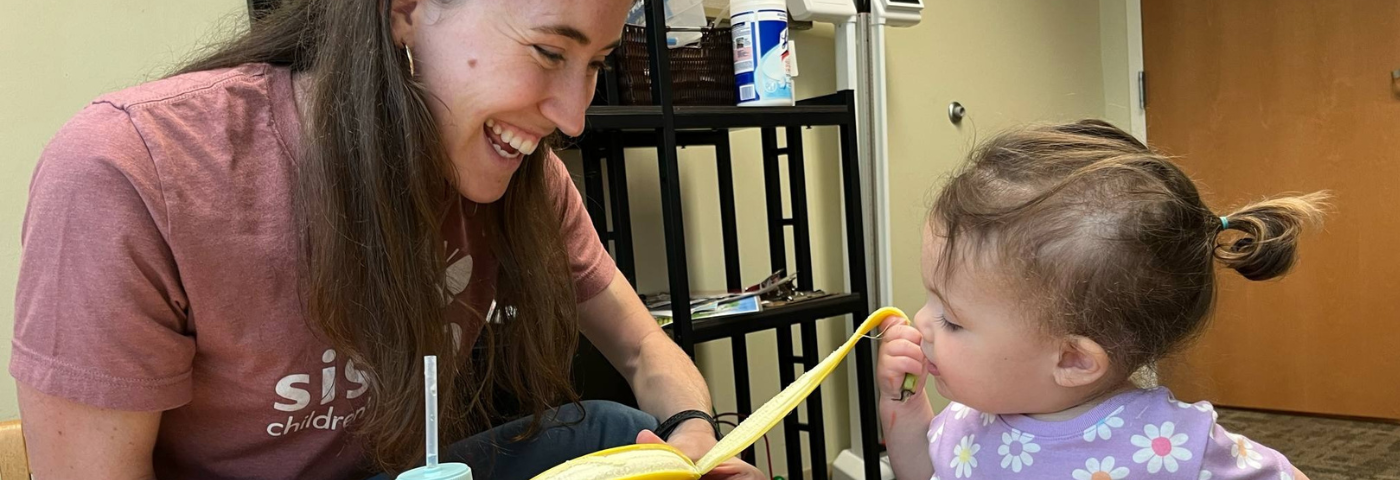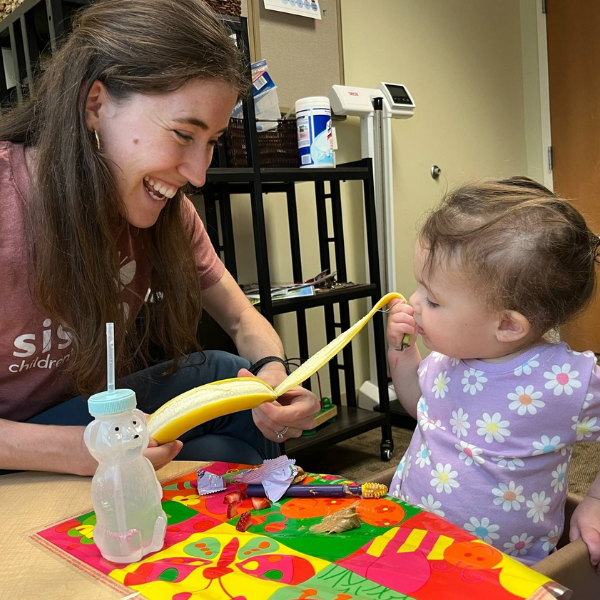What Is Feeding Therapy?
Any parent of young children can tell you that mealtimes can be a struggle. But when those feeding challenges impact your child’s health and ability to thrive, your child may benefit from pediatric feeding therapy.
Pediatric feeding therapy is a type of therapy that helps children with feeding difficulties such as issues with breast or bottle feeding, transitioning to solid foods, and picky eating. The goal of pediatric feeding therapy is to help children develop the skills and behaviors necessary to eat a healthy and varied diet.
Individuals with limited English proficiency will have access to free interpretation and translation services.



